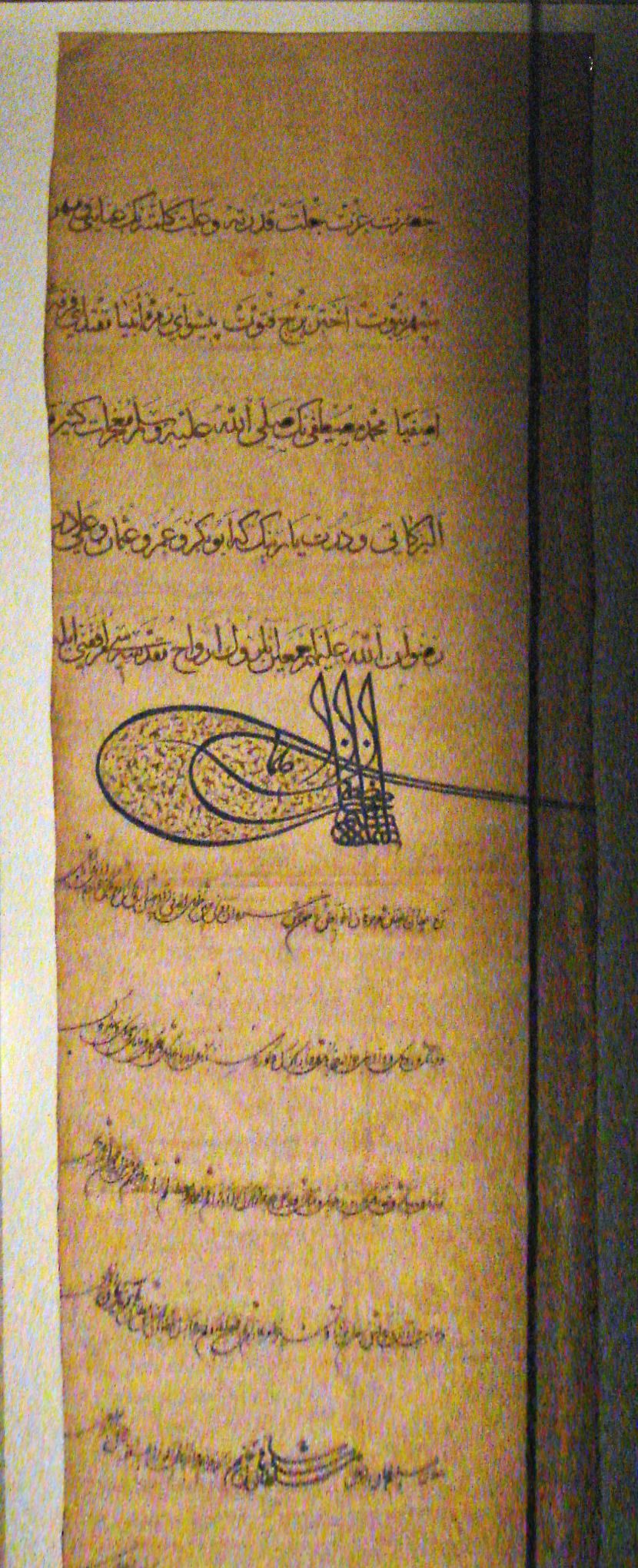THE LILY AND THE CRESCENT
The secret alliance of the French king Francis with the Ottoman Sultan Suleiman the Magnificent
The 24th of February 1525 was a bad day for Francis I King of France. After his army’s complete annihilation at the battle of Pavia, he’d been captured by a lowly mercenary and he was now a prisoner of his most hated enemy Charles V, Hapsburg King of Spain and Holy Roman Emperor.
As he was led away to begin his ignominious captivity, Francis handed his gaolers a letter and asked that it be delivered to his mother, Louise of Savoy. As the laws of chivalry decreed, the letter was taken to the French queen and the last line contains the heartfelt words of a son urging his mother not to worry:
"Of all things nothing remains to me but honour and life, which is safe,” writes Francis but in this he was mistaken.
Though he was not ill-treated, Francis' health deteriorated rapidly and by September 1525, the captive king was reportedly close to death. On hearing this news, Francis’ mother tried to increase the diplomatic pressure on Charles to release her son, but the catastrophic defeat at Pavia had left France without a single friend in Europe.
France’s traditional allies (the Pope, the Venetians and the Poles) were in no position to threaten Charles. In fact, there was only one monarch powerful enough to challenge the almighty Hapsburgs and that was the Ottoman-Turkish Sultan Suleiman the Magnificent. However, to offer an olive branch to the ruler of a vast Muslim empire was a dangerous strategy for a French queen whose son held the title ‘Most Christian King’.
By encouraging the Islamic Ottomans to attack a fellow Catholic ruler, Louise knew she would attract the hostility of every pious Christian in Western Europe but she also knew that she had little choice. France was surrounded by Hapsburg territories (even England was in the Hapsburg camp by virtue of Henry VIII’s marriage to Charles V’s aunt Catherine of Aragon) but if the Ottomans attacked Charles’ dominions in the east, France could renew the war against him in the west.
Her mind made up, Louise immediately dispatched an emissary to Constantinople but the ambassador and his entourage disappeared while crossing the mountains of Bosnia. In December 1525, Louise tried again and appointed a Croat noble by the name of John Frangipani as her ambassador to Suleiman’s court. This time the French embassy arrived at the Sublime Porte safely and Frangipani returned to Paris on the 6th of February 1526 with the Sultan’s reply, of which the following is an extract:
To thee who art Francesco, king of the province of France... You have informed me that the enemy has overrun your country and that you are at present in prison and a captive, and you have asked aid and succours for your deliverance… Take courage then, and be not dismayed… Night and day our horse is saddled and our sabre is girt…For the rest, question your ambassador and be informed… [to read the full text of the letter click here].
The sultan's letter arrived at a highly fortuitous time for the French. Three weeks earlier, Francis had signed the Treaty of Madrid, in which he'd renounced all French claims to Flanders, Navarre, northern Italy and even Burgundy in order to secure his freedom, but Suleiman's offer of support allowed him to tear up this humiliating treaty.
On the 22nd of March 1526, just four days after his return home, Francis proclaimed that the Treaty of Madrid had been obtained by duress and he would not abide by its terms. Charles was furious at such duplicity but he could do nothing because, shortly afterwards, Suleiman attacked Christian Hungary, whose king was Charles' brother-in-law, whilst Francis renewed the war in Italy.
Though the previously independent Kingdom of Hungary was utterly destroyed in the fighting, the ensuing war did little to alter the balance of power in Western Europe and the French and Ottomans continued to attack the Hapsburgs throughout the 16th, 17th and 18th Centuries. Incredibly, the centuries-old Franco-Turkish alliance was only ended by Napoleon’s conquest of Ottoman controlled Egypt and Syria in 1798!


